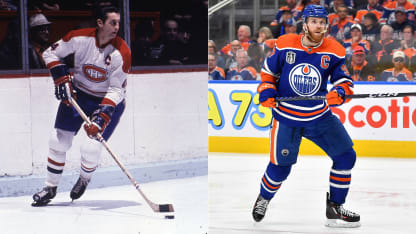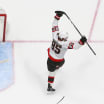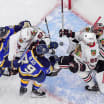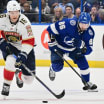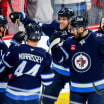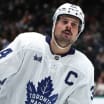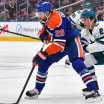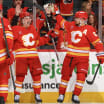Milt Schmidt, Boston Bruins
Following longtime Bruins leader Eddie Shore in the late 1930s was a huge challenge for Schmidt, a native of Kitchener, Ontario, but the rugged center did so, and then some. At center, "Uncle Miltie" was most responsible for "The Kraut Line" with Woody Dumart and Bobby Bauer being an NHL threat.
"No question that Milt was the fellow who made the team go," Bruins publicist and Boston Globe writer Herb Ralby said. "He was an intense competitor and very tough."
Schmidt -- he allowed that he was "a tough player" -- led the NHL in scoring in 1939-40. After he returned from World War II, he proved better than ever with an career-high 27 goals in 1945-46 and continued to star even after the Kraut Line broke up.
"Milt was one of the greatest Bruins ever," defenseman Bobby Orr said.
There were no arguments about that.
